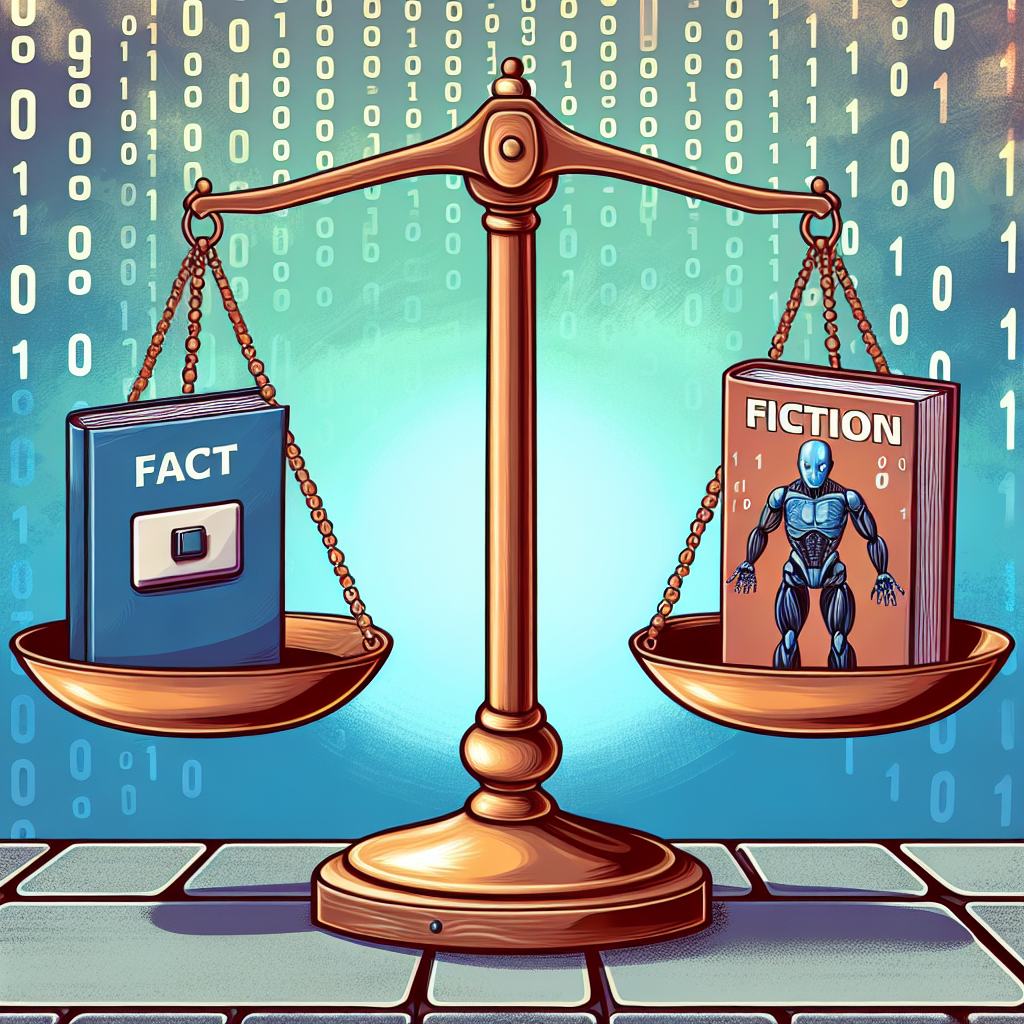AGI: Separating Fact from Fiction in the World of Artificial Intelligence
Artificial General Intelligence (AGI) is a term that has been thrown around a lot in recent years, sparking both excitement and fear in equal measure. The idea of creating a machine that can think and learn like a human is a tantalizing prospect, but also raises a host of ethical and existential questions.
In this article, we will delve into the world of AGI, separating fact from fiction and exploring the current state of the art in artificial intelligence research. We will also address some common misconceptions and fears surrounding AGI, and provide a balanced perspective on the potential benefits and risks of this emerging technology.
What is AGI?
AGI refers to a type of artificial intelligence that is capable of performing any intellectual task that a human being can do. This includes tasks such as problem-solving, reasoning, learning, and understanding natural language. AGI is often contrasted with narrow AI, which is designed to perform specific tasks within a limited domain (e.g. image recognition or speech synthesis).
The ultimate goal of AGI research is to create a machine that can exhibit general intelligence across a wide range of tasks, without being explicitly programmed for each task. This would represent a major leap forward in the field of AI, and has the potential to revolutionize many aspects of human society.
Current State of AGI Research
While the concept of AGI has been around for decades, the field has made significant advances in recent years thanks to the rapid progress in machine learning and neural networks. Researchers are now able to develop AI systems that can learn from vast amounts of data and improve their performance over time through a process known as deep learning.
However, despite these advances, true AGI remains a distant goal. While AI systems can now outperform humans in specific tasks such as playing chess or recognizing objects in images, they still lack the ability to generalize their knowledge and apply it to new situations. This is known as the problem of “common sense reasoning”, and is a major hurdle for AGI research.
In order to achieve AGI, researchers will need to develop AI systems that can understand context, reason about causality, and learn from limited data. This will require advances in areas such as natural language processing, symbolic reasoning, and cognitive science, as well as new approaches to machine learning and neural networks.
Benefits of AGI
The potential benefits of AGI are vast and wide-ranging. A truly intelligent machine could help us solve some of the most pressing challenges facing humanity, such as climate change, disease, and poverty. It could also revolutionize industries such as healthcare, education, and transportation, leading to increased efficiency and productivity.
AGI could also help us gain a deeper understanding of the universe and our place in it. By simulating complex systems and running experiments in virtual environments, researchers could uncover new scientific insights and make breakthroughs in areas such as physics, biology, and astronomy.
In addition, AGI could help us explore new frontiers in creativity and art. By generating novel ideas and creating original works of music, literature, and visual art, AI systems could inspire human creativity and push the boundaries of what is possible in the realm of artistic expression.
Risks of AGI
Despite its potential benefits, AGI also poses significant risks and challenges. One of the main concerns is the possibility of unintended consequences, as intelligent machines may not always behave in the ways we expect or desire. This could lead to errors, accidents, or even deliberate harm if AI systems are not properly designed and controlled.
Another risk is the potential for job displacement, as AI systems take over tasks previously performed by humans. While automation has the potential to increase efficiency and productivity, it could also lead to widespread unemployment and economic disruption if not managed properly. This could exacerbate existing inequalities and widen the gap between the rich and the poor.
There are also ethical and philosophical concerns surrounding AGI, such as the question of machine consciousness and moral agency. If AI systems become as intelligent as humans, should they be granted the same rights and responsibilities? How do we ensure that AI systems act ethically and in accordance with human values?
FAQs about AGI
Q: Will AGI lead to the singularity?
A: The singularity refers to a hypothetical point in the future when AI surpasses human intelligence and accelerates technological progress exponentially. While some researchers believe that AGI could lead to the singularity, others argue that this scenario is unlikely or even impossible. The future of AGI is uncertain, and it is difficult to predict how it will impact society in the long term.
Q: How close are we to achieving AGI?
A: While significant progress has been made in AI research in recent years, true AGI remains a distant goal. Researchers are still grappling with fundamental challenges such as common sense reasoning, natural language understanding, and ethical decision-making. It is difficult to predict when or if AGI will be achieved, but many experts believe that it could happen within the next few decades.
Q: Should we be afraid of AGI?
A: Fear of AGI is a common theme in popular culture and science fiction, but the reality is more nuanced. While there are legitimate concerns about the risks and challenges of AGI, it is also important to recognize the potential benefits and opportunities it could bring. By approaching AGI research with caution and foresight, we can ensure that this powerful technology is used for the greater good.
In conclusion, AGI is a complex and multifaceted field that holds great promise for the future of artificial intelligence. While there are risks and challenges associated with AGI, there are also significant benefits and opportunities to be gained. By separating fact from fiction and approaching AGI research with a balanced perspective, we can navigate the ethical and societal implications of this transformative technology.

